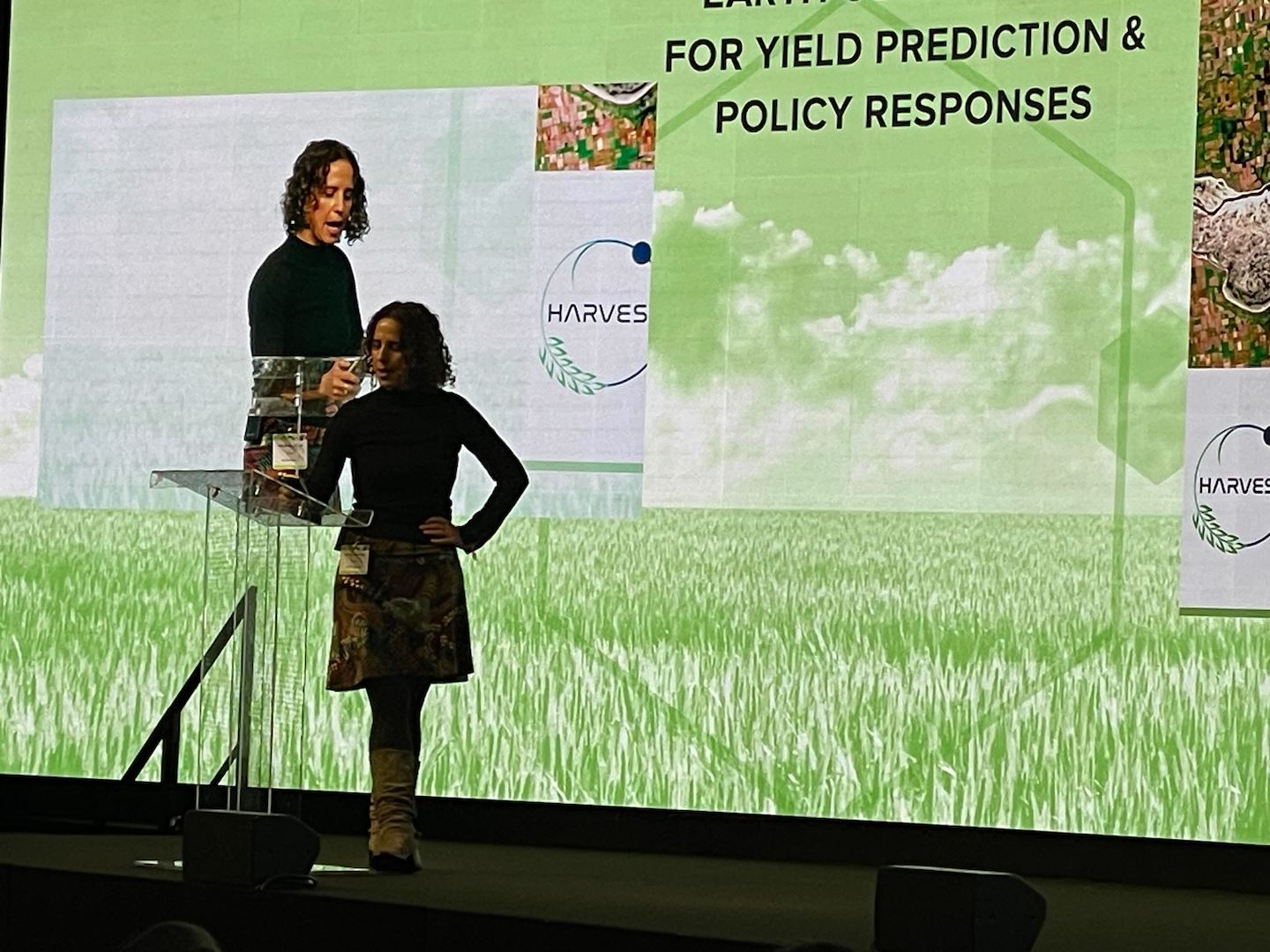Latest News

Inbal Becker-Reshef, Director of NASA Harvest addresses the World Agri-Tech Innovation Summit in London on Sept. 30. Photo: Via Satellite
LONDON — Satellites have the capability to play a huge role in the sustainable agricultural revolution. This was a key theme during the World Agri-Tech Innovation Summit, which took place in London this week.
NASA Harvest Director Inbal Becker-Reshef said that food security is one of the most “critical issues of our time,” as the world looks to grapple with a potential global food crisis over the next 25 years.
The numbers alone are quite staggering. Addressing the event on Sept. 30, Becker-Reshef said over 730 million people are impacted by food security. This includes 1 in 5 in Africa who are impacted. She said that 35 percent of people cannot afford a healthy diet. More efficient food production is a top priority.
“COVID and Ukraine bought food security back to the forefront to the government and the private sector. Some have asked, ‘Is food the new oil?’ The facts are we need to produce 30 to 50 percent more food by 2050 on the same amount of land,” Becker-Reshef said.
These are sobering statistics but this is where advances in satellite tech could help. “One of the directions is to help provide information through satellite data – around major producers and exporters, areas of conflict. Satellite data can provide actionable and timely information,” she added.
While satellite data is important and can help the world’s food producers, it is only part of the solution. Becker-Reshef says better satellite data can help improve practices, crop rotations, etc.
“We really need to understand and how our planet is changing. There is a crucial role for the commercial (space) sector. Higher resolution data is key. It is really critical [that] agencies building satellites are listening to industry and governments. Satellite data for agriculture is not a new thing. I think what has changed is what we can do with it, for example, AI and processing capabilities,” Becker-Reshef said.
She spoke to the importance of commercial companies innovating in the satellite imagery space. “I think at the moment the commercial satellite sector is meeting the need when it comes to high resolution data delivered on a daily basis. We are seeing innovation in the SAR and hyperspectral space, and I think we will see a lot more innovation from companies here,” she said.
Satellite data and communications have a role to play to meet the bold goals for the global food supply, as evidenced by the investment in satellite solutions from agricultural manufacturers John Deere and CNH Industrial. Agricultural leaders at the London event highlighted the importance of advanced technology to meet the challenges at hand.
Gunther Beger, managing director of the Directorate of SDG Innovation and Economic Transformation, for the United Nations Industrial Development Organization (UNIDO) opened the event with a message about the UN’s mandate to support sustainable industrialization that is backed by over 170 nations.
According to the UN, 2 billion people globally suffer from hunger, malnutrition and under-feeding. With the global population set to reach 10 billion by 2050, this is far from an easy challenge to solve. Beger said conflict is still one of the main drivers behind hunger. He also spoke of the impact of climate change, as well as economic shocks such as the recent increase in global fertilizer prices and the impact that this had. “I believe we must end poverty and hunger in the world. We know what we have to do,” he said.
Beger cited five things that could help alleviate hunger. Not surprisingly, he spoke of investment. He said that around $100 billion each year between now and 2030 would need to be invested to end food poverty.
Secondly, perhaps more relevant to the satellite community, is more investments in technology and solutions. Technology that can help food yields and minimized food losses would be key. Investments in technology to reduce carbon dioxide emissions can also be factored into this.
Beger also spoke about investments in better infrastructure, and storage, and creating opportunities locally. He cited the statistic that 30 to 40 percent of food produced in the field does not reach the stomach. Improvements in transportation and storage could dramatically help here.
He pointed to the importance of empowering women in agriculture and making sure there is more equality for women working in this sector, and having fairer supply chains.
Neil Kay, vice president of EMEA West for multinational chemical company BASF, said that 15 to 20 percent of yield losses can be directly attributed to a one percent increase in the global temperature. He believes greater incentivization could be a crucial factor here. He said, “Balancing food security with decarbonization is incredibly challenging. We need to incentivize growers and producers in our industry. We need a reward system in Europe that incentivize new techniques and innovation adoption. We need to make our money go further.”
It is clear that recent world events such as Russia’s invasion of Ukraine and COVID have put this challenge into stark focus. Patrick Pagani, deputy secretary general of the European farming lobby Copa-Cogeca, highlighted the fact that these world events led to food inflation peaking at 30 percent in some European Member States.
He added, “Agriculture and food needs be back at the forefront and seen as a strategic asset in Europe. This year, for example, we had strong impacts coming from too much water in certain countries. Farmers need predictability, stability. We need a Europe that embraces innovation.”
Stay connected and get ahead with the leading source of industry intel!
Subscribe Now